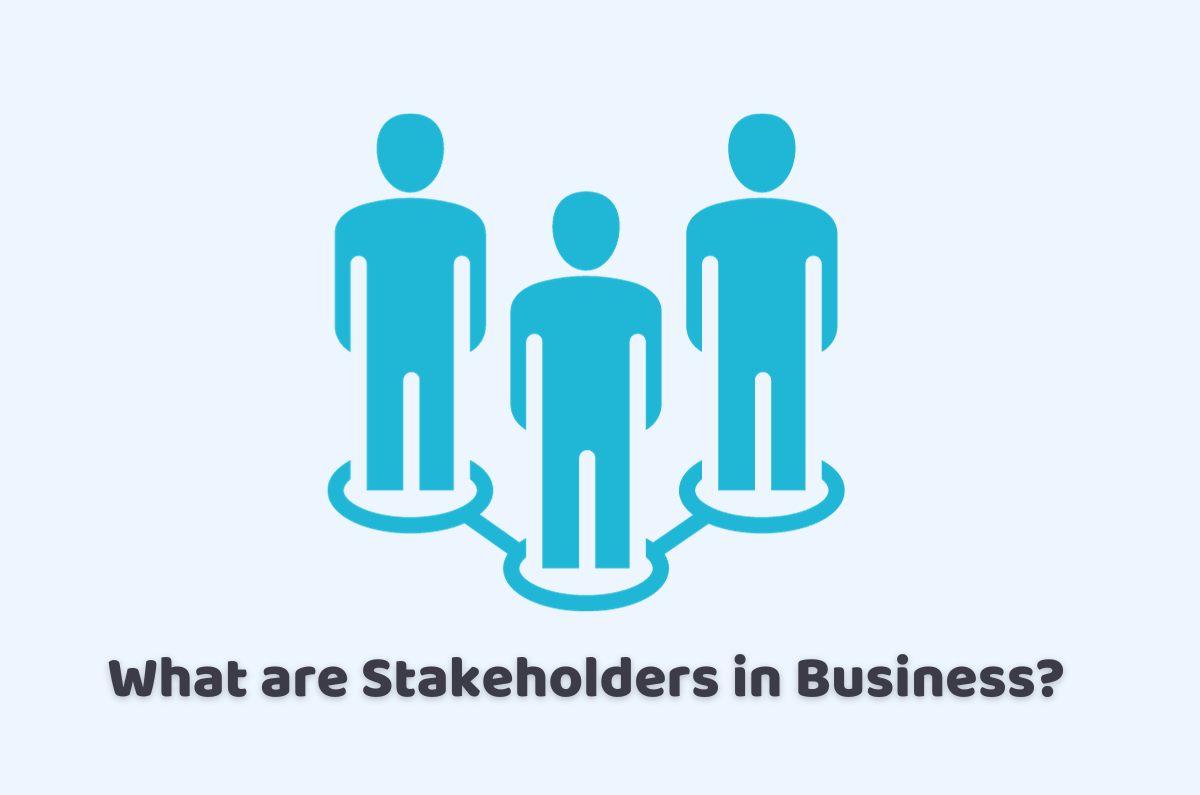
28/12/2023Business , Business Growth Ideas
Let’s dive into our discussion about what are stakeholders in business. In the world of business, stakeholders play a vital role in shaping the success and direction of a company. But who exactly are the stakeholders? Well, stakeholders are individuals or groups who have a vested interest or influence in a business. So, in this discussion, we’ll explore the various types of stakeholders, their roles and importance, and how businesses can effectively engage and manage these relationships to thrive in the dynamic business landscape. Let’s get started!
Are you looking for reliable accountants in London, contact us!
What are Stakeholders in Business?
In the business world, stakeholders can include a wide range of people, such as employees, customers, suppliers, investors, shareholders, government agencies, and even the local community. Additionally, stakeholders may have the ability to influence company decisions through public consultations, annual general meetings, or other forms of engagement. Understanding and managing stakeholders is essential for businesses in the UK to maintain positive relationships, ensure transparency, and meet their obligations.
How Do Stakeholders Influence a Business?
Stakeholders play a crucial role in influencing a business in the UK. Stakeholders can influence a business in various ways. Customers, on the other hand, have the power to influence a business through their purchasing decisions and feedback. Their satisfaction and loyalty can drive sales and reputation. Suppliers also have a significant influence on a business. Investors, such as shareholders or venture capitalists, can influence a business through their financial support and decision-making power. Their investments can provide capital for growth and expansion or influence strategic decisions.
Government agencies can influence a business through regulations, policies, and licencing requirements. Compliance with these regulations is essential for a business to operate legally and ethically. The local community can also influence a business through their support or opposition. Their perception of the business’s impact on the environment, social responsibility, and community involvement can affect its reputation and success.
What are the Types of Stakeholder and What is Their Role in Business?
Let’s break it down:
1. Employees: The people working within the organisation are vital stakeholders. They contribute their skills, time, and effort to help the business thrive.
2. Government: Government entities, such as regulatory bodies and tax authorities, have an interest in the business’s compliance with laws and regulations.
3. Local Community: The community surrounding the business can be considered a stakeholder, as their support, perception, and impact from the business’s operations can influence its success.
4. Competitors: Though not directly involved in the business, competitors can be considered stakeholders as their actions and strategies can impact the market dynamics and the business’s position.
Each stakeholder group has its own interests and expectations for the business. Effectively managing these relationships and considering their perspectives is crucial for the long-term success and sustainability of the business
What are the Roles of an Internal Stakeholder?
There are several important roles performed by them, which are explained below.
1. Owners/Shareholders: These individuals or entities have a financial stake in the business and play a crucial role in decision-making processes.
2. Employees: The workforce within the organisation is a vital internal stakeholder group. They contribute their skills, knowledge, and efforts to the success of the business.
3. Trade Unions: In cases where employees are unionised, trade unions represent the collective interests of the employees and negotiate on their behalf for better working conditions, wages, and benefits.
4. Internal Committees: These committees, such as the audit committee or remuneration committee, provide oversight and guidance on specific areas of the business, ensuring compliance and best practices.
What are the Roles of an External Stakeholder?
Customers provide revenue and feedback, suppliers provide essential resources, investors provide capital, and government agencies enforce regulations. Engaging and managing relationships with external stakeholders is essential for businesses to thrive and maintain a positive reputation in the UK market.
What is the Role of Additional External Stakeholders?
Some common examples of additional external stakeholders include trade unions, industry associations, advocacy groups, and regulatory bodies. Trade unions represent the interests of workers and can play a role in negotiating labour agreements and ensuring fair working conditions. Industry associations bring together businesses within a specific sector to collaborate, share best practices, and advocate for common interests.
Advocacy groups may focus on specific social or environmental issues and can influence business practices through public pressure and lobbying. Regulatory bodies, such as the Financial Conduct Authority or the Health and Safety Executive, enforce laws and regulations to ensure compliance and protect the interests of stakeholders. These additional external stakeholders can have a significant impact on businesses in the UK, shaping policies, influencing public perception, and promoting responsible practices.
The Bottom Line
To wrap up this discussion about what are stakeholder in business, we can say that stakeholders are individuals or groups who have a vested interest or influence in a business. They can include customers, employees, suppliers, investors, government agencies, local communities, and more. Throughout our conversation, we’ve explored the role of stakeholders in UK businesses, emphasising their importance in shaping the success and sustainability of a company.
We discussed how external stakeholders play a crucial role, such as customers providing revenue and feedback, suppliers offering essential resources, and government agencies enforcing regulations. We also touched upon additional external stakeholders like trade unions, industry associations, advocacy groups, and regulatory bodies, all of which can impact business operations and outcomes. So, as businesses in the UK, it’s crucial to recognise and prioritise the interests of stakeholders to thrive in the dynamic business landscape.
At CruseBurke, we offer experienced accountants who adhere to UK accounting standards and tax regulations to prevent penalties. Click here to receive a quick quote!
